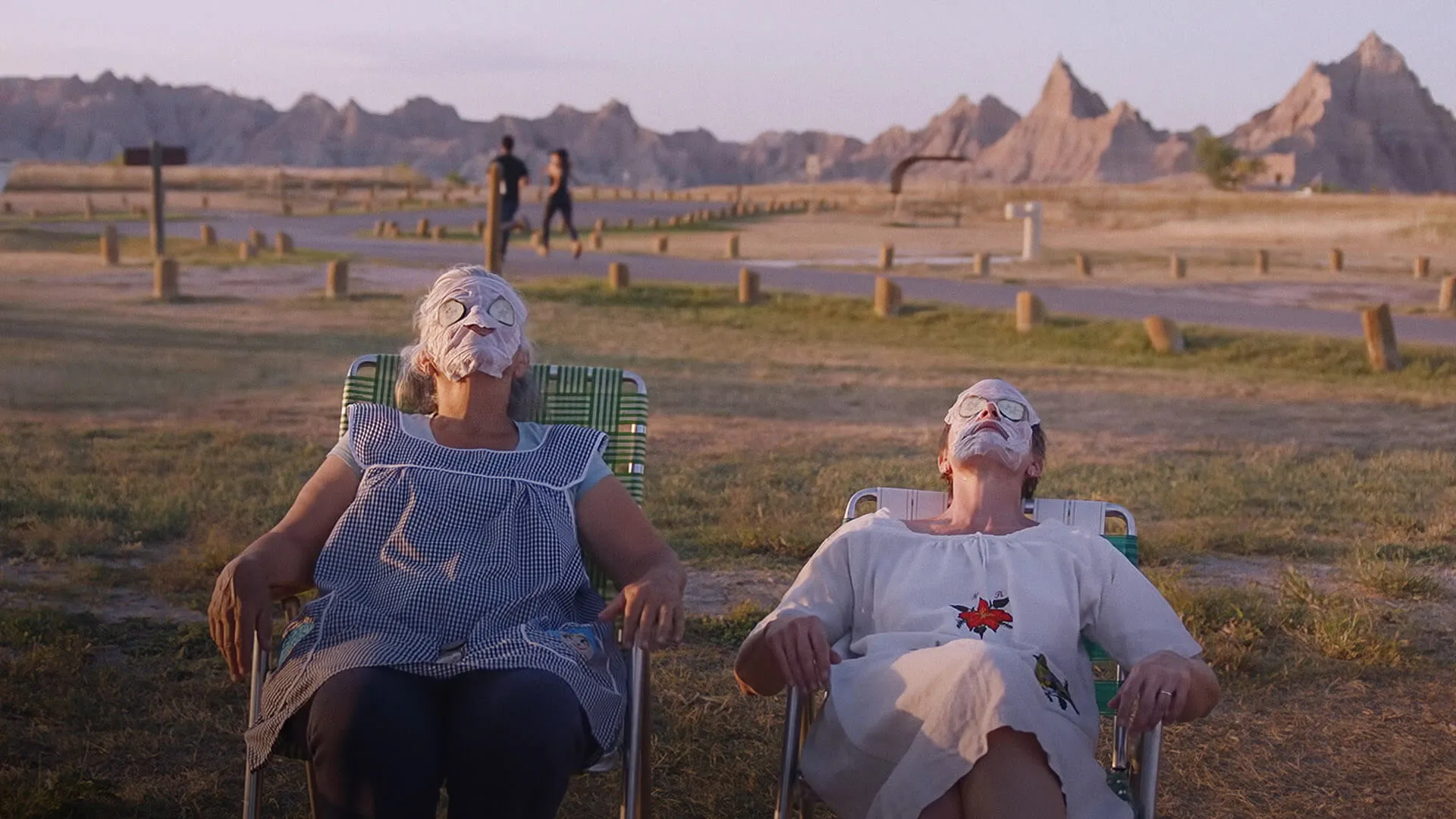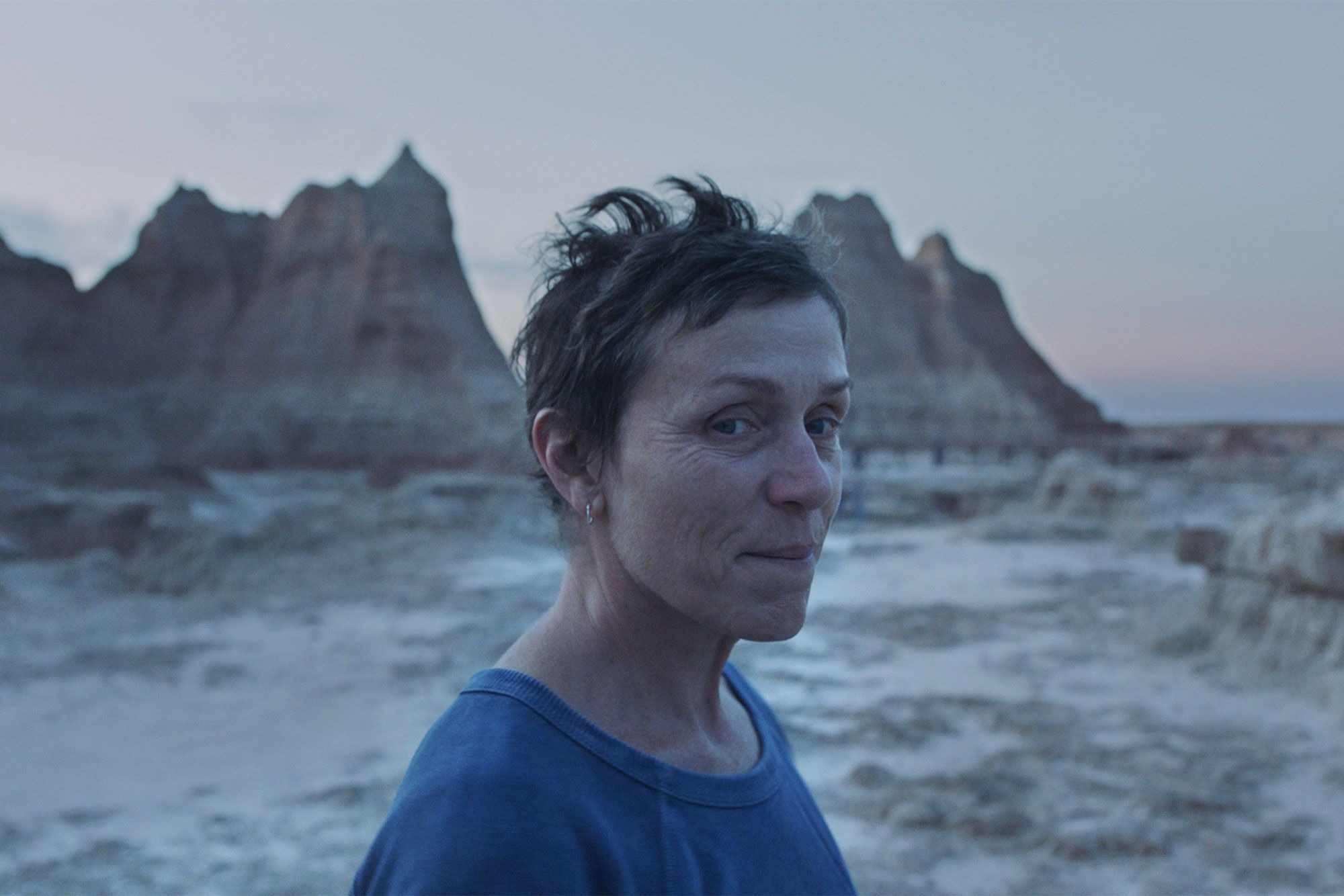Nomadland tells the poignant story of Fern (Frances McDormand), a woman grappling with loss and healing. The film begins shortly after the death of Fern’s husband, Bo, and the closure of the factory where she worked in the now-deserted town of Empire, Nevada.
With the Great Recession deeply affecting her, Fern sets off to live as a nomad, seeking a life that is far removed from the conventional one she knew. This decision, though prompted by external circumstances, is also a personal journey of self-discovery and finding meaning in a world that seems to have left her behind.

Through the course of the film, Fern finds herself working various temporary jobs and meeting people who share similar experiences of loss and displacement. The film delicately touches on the struggles of going through a new life while holding onto the past.
Its stunning visuals and a heart-wrenching piano-driven soundtrack add depth to the emotional journey. Nomadland excels at portraying these emotions without overtly stating them, creating a quiet but powerful perspective that stays with viewers long after the credits roll.
The Real-Life Inspiration Behind Empire, Nevada
At the start of Nomadland, the film references the true story of Empire, Nevada. In 2011, the US Gypsum plant, which had operated for 88 years, shut down, leading to the town’s decline. By 2012, Empire had turned into a ghost town, and its zip code was even discontinued.
Fern’s story in the film mirrors this reality, where a once-thriving community is abandoned, forcing its residents to find new ways of surviving. Empire’s real-life residents, just like Fern, were left with no choice but to embrace a nomadic life after the recession brought an end to their former way of living.
Although Fern’s character is fictional, her story echoes the struggles of the Empire’s actual residents. By 2016, when Empire Mining Co. bought the town, only a few former residents remained, but life was never the same.
They, like Fern, were forced to adapt to a life without the roots they had once known, much like many others who had lost everything during the economic crisis.
Fern’s Departure from David
As the film draws to a close, Fern decides to leave David, despite his obvious affection for her. David, a character Fern meets on her journey, offers her a sense of stability. He invites her to stay with him and his family, even providing her with a job.
However, when he asks her to stay for a longer time, she declines. Her choice to leave without saying goodbye might seem like an act of rejection, but it is a reflection of Fern’s deep-seated need for independence and authenticity.
It’s clear that Fern cares for David, yet her needs at that moment are not aligned with settling into a conventional life. The loss of her husband, Bo, had already shattered her sense of belonging, and Fern is not ready to replace that emptiness with a new relationship or home.
Throughout the film, she remains true to herself, accepting that the only way forward is on her terms. Fern’s journey is about healing and coming to terms with the changes in her life, and her departure from David marks a crucial step in her emotional growth.
Fern’s Return to Empire
By the time Nomadland reaches its final scenes, Fern returns to Empire, Nevada, a place filled with memories of her life with Bo. While the timeline of her return is unclear, it is evident that she is still processing her grief.
Meeting Bob, a leader in the nomad community, Fern engages in a conversation about the loss of their loved ones. Bob shares a philosophy that helps Fern accept the nature of loss. In their community, death is not seen as a final separation but as a part of an ongoing journey.

This idea helps Fern begin to heal, giving her the strength to return to the Empire and say a final goodbye to Bo and the town that once felt like home. In the past, Fern’s nomadic lifestyle had prevented her from fully processing her loss, as she was always on the move.
However, with Bob’s insight, she begins to see the end of her chapter in Empire not as a final farewell but as a natural progression. Returning to Empire is her way of letting go and moving forward with her journey.
The Meaning Behind Nomadland’s Ending
At its core, Nomadland embodies the idea that “home is where the heart is.” For Fern, this sentiment is realized through her interactions with others and her journey. She is someone who left her hometown at the earliest opportunity, never looking back.
Even in Empire, where she lived with Bo, Fern was never fully anchored to the town; it was Bo she was attached. The ending of Nomadland reinforces the idea that the past is irrevocably gone, with Bo’s death and the closure of the Empire symbolizing the end of an era.
The film also serves as a visual metaphor for the economic struggles caused by the Great Recession. As Fern returns to Empire, it highlights the devastating toll the financial crisis took on small-town America.
Despite her difficult circumstances, Fern finds peace and emotional healing in her nomadic life, gaining valuable connections and insights along the way. Her return to the Empire represents a full circle in her journey — accepting the past and finally finding a sense of belonging, not in a fixed place, but in the open road.



